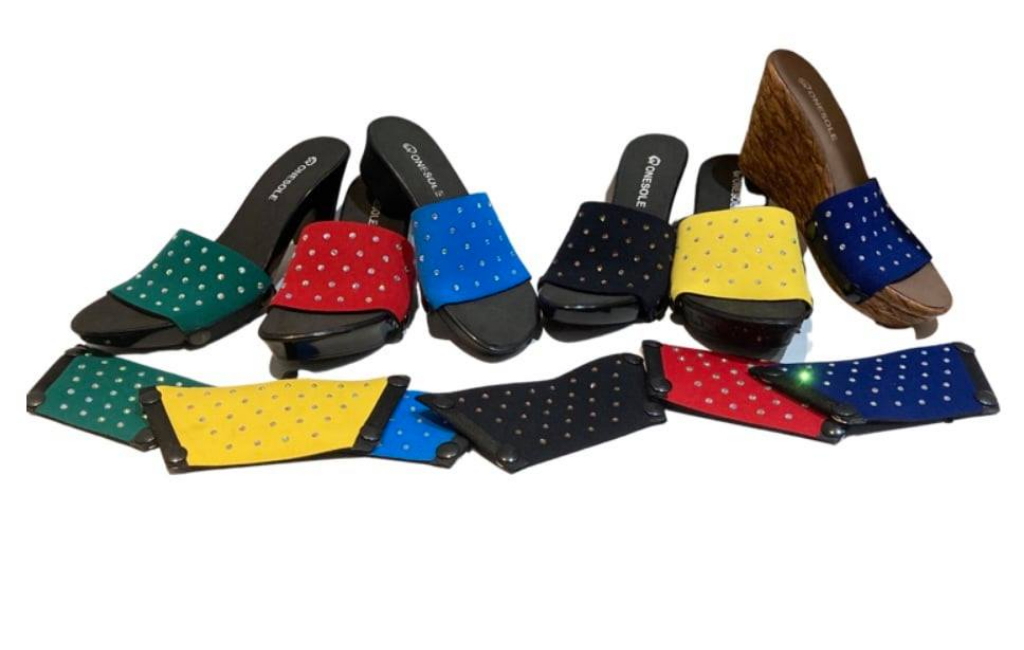Samson Martin

NO DEAL
EPISODE SUMMARY
🕓 Air Date: May 13, 2011
Asking For:
$50,000 for 15%
Investor:
No Deal
Deal:
No Deal
PRODUCT SUMMARY
Samson Martin offers a line of maternity t-shirts, including the "Due In" tee, designed to cater to expecting mothers' fashion needs.
WATCH HERE
IN A RUSH?
Click these to jump to the section you want to read.
Background Story
Kim Preis founded Samson Martin, a maternity t-shirt company, after observing a common dilemma among her pregnant friends: constantly being asked about their due dates. Recognizing an opportunity to turn this recurring question into a fashionable statement, Kim launched the “Due In” tee and expanded her collection to cater to various maternity needs. Kim’s entrepreneurial journey likely drew upon her passion for fashion and her desire to provide expecting mothers with stylish and comfortable clothing options during pregnancy.

Kim’s decision to target upscale boutiques initially was driven by her goal to align her brand with higher-end fashion labels. However, economic challenges, particularly the recession, forced her to reposition the brand towards more economical offerings and mass retailers. Despite facing setbacks, Kim’s determination drove the company’s growth, achieving sales of $1.4 million over six years. Her innovative approach to maternity wear, evidenced by the trademarked “Due In” tee, demonstrates her ability to identify market needs and create fashionable solutions. Through Samson Martin, Kim aims to empower pregnant women by offering them stylish and confidence-boosting clothing options tailored to their unique needs.

The Product
Samson Martin’s flagship product is the “Due In” maternity tee, designed to provide expecting mothers with a fashionable and practical wardrobe option. The tee features a stylish design with the phrase “Due In” prominently displayed, serving as a conversation starter and a trendy statement piece for pregnant women. Available in various colors and sizes, the tee caters to different preferences and stages of pregnancy, ensuring a comfortable and flattering fit.
Constructed from high-quality materials, Samson Martin’s maternity tees offer both style and functionality. The soft and breathable fabric provides maximum comfort, while the stretchy design accommodates the changing shape of the body during pregnancy. The tees can be paired with jeans, leggings, or skirts, making them versatile pieces for casual outings or relaxed occasions.
Samson Martin’s maternity tees can be purchased online through the company’s website or in select retail locations. With prices ranging between $38 and $60, the tees offer an affordable and stylish option for expecting mothers seeking comfort and fashion during pregnancy. Whether as a personal wardrobe staple or a thoughtful gift for a pregnant friend, Samson Martin’s maternity tees embody the brand’s commitment to empowering pregnant women through fashion and style.

How It Went
The company’s position before Shark Tank
Samson Martin has experienced both successes and challenges in its journey as a maternity t-shirt company. Founded by Kim Preis, the company initially targeted upscale boutiques with its fashionable maternity tees, including the iconic “Due In” tee. However, economic downturns, particularly the recession, forced Samson Martin to reassess its strategy and pivot towards more economical offerings and mass retailers. Despite facing setbacks, Samson Martin has achieved notable milestones, including total sales of $1.4 million over six years.

The brand has garnered attention and recognition for its innovative approach to maternity wear, with a trademarked “Due In” tee that has attracted celebrity endorsements. In terms of distribution, Samson Martin partners with various retailers to reach its target market of expecting mothers. Samson Martin’s customer base primarily consists of pregnant women seeking fashionable and comfortable clothing options during pregnancy. The brand’s commitment to providing stylish and practical maternity wear has resonated with this demographic, driving sales and brand loyalty.

In terms of funding, Samson Martin’s current sources of capital are not explicitly mentioned in the transcript. However, Kim Preis’s statement about seeking $50,000 for marketing, production, and manufacturing suggests that the company may be seeking additional investment to fuel growth and expansion. Overall, Samson Martin’s performance reflects a mix of achievements and challenges, with a focus on adapting to market conditions and meeting the needs of its target audience.
The Negotiations:
During the negotiations, Kim Preis, the founder of Samson Martin, sought $50,000 in exchange for 15% equity in her maternity t-shirt company. However, despite her confident pitch and proven sales track record of $1.4 million, the Sharks expressed concerns about the company’s declining sales and limited market reach. Kim’s niche focus on maternity wear raised questions about scalability and market saturation, particularly in the face of economic challenges and changing consumer preferences.

While some Sharks appreciated Kim’s entrepreneurial spirit and the uniqueness of her product, they ultimately passed on the opportunity due to doubts about the brand’s future viability and scalability. Kim’s request for funding to reposition the brand and expand into mass retail faced skepticism, as the Sharks questioned her ability to navigate the competitive retail landscape without established contacts or a concrete plan.

Despite facing harsh criticism from some Sharks, Kim remained steadfast in her belief in the brand’s potential, emphasizing its past success and her commitment to revitalizing it. However, the Sharks ultimately opted not to invest, citing concerns about the company’s future prospects and the challenges of the maternity wear market. Overall, the negotiations highlighted the importance of scalability, market saturation, and competitive positioning in the fashion industry, as well as the challenges of securing investment in a niche market segment like maternity wear.






